Can the new monetary policy solve our problems?

Behind the Bangladesh Bank's announcement of this year's monetary policy was a certain pressure applied by the International Monetary Fund (IMF). The IMF said it wasn't right to adopt yearly monetary policies. Our economists, too, have suggested that there is no harm in adopting quarterly monetary policies instead of yearly, as we would get access to more information. This condition isn't necessarily in opposition to the government's interests, so the government has accepted it. This will lead to increased re-evaluation of the monetary policy, which is good.
The IMF had other conditions too, one of which was to reduce all manners of subsidies. The main agenda, though, was subsidies in the energy and power sectors. If fuel prices are not subsidised, then the power sector is also not subsidised, and that leads to an increase in electricity prices.
Depreciating the taka against foreign currencies was another IMF condition. The taka's exchange rate against the US dollar is artificially high in the market, and reducing that may also be beneficial. But an after-effect of this change is a rise in import expenses. This would lead to a dual effect as 30 percent of our economy is now dependent on foreign trade. Exports should become cheaper, leading to more exports and, consequently, more export earnings. But that doesn't always happen in our country. We have made ready-made garment (RMG) products cheaper, but buyers still want even cheaper prices. They are making delayed payments. The increase in shipping prices is wiping out any increased profits.
The statistics, however, show that there has been a recent uptick in exports. One of the hypotheses of the government's monetary policy is that exports will increase in the future and that will lead to a resolution of the forex reserve crisis we are in. But there are doubts that are posed by a potential increase in fuel prices, which depends on how the Russia-Ukraine war progresses. Even though fuel prices are going down now, it could increase at any time because of the war. So, this monetary policy is being devised in a period of uncertainty. The Bangladesh Bank governor has announced this monetary policy while being stuck in a wedge between this uncertainty and pressure from the World Bank.
The governor has some positive expectations here: fuel prices will go down; remittance will increase; export incomes will go up; and forex reserves will be replenished. This will all lead to a decrease in the necessity for currency depreciation. But the IMF has imposed the condition that the exchange rate needs to be brought to the market level as soon as possible. To do that, the taka's value needs to be depreciated gradually and cautiously in terms of the US dollar. That work has begun already.
The IMF loan is not large. It may be able to finance three months' import costs. This loan will not help us survive, but the prestige of getting an IMF loan will lead to us being able to acquire more US dollars from other sources. This may help in mitigating the dollar crisis that looms if our exports don't go up and if we can't substitute our imports properly.
The monetary policy this time around is a cautious one in the face of two distinct pressures. They have assumed some positive preconditions to tell the tale of an expected sunny picture. The first question here is, how much will this will be reflected in reality? The second question is, if it is indeed the reality, does it have any other negative effects? The answer to the first question is that it can be real if the war in Ukraine doesn't intensify and lead to an increase in fuel prices. It can also be real if our export market diversifies and expands, which will depend on whether the worldwide recession and the downturn of demand for foreign goods get fixed.
The expected growth rate has been reduced from seven percent to six percent, which also seems appropriate. The printing of money is by and large unavoidable as the broad money growth is still below the previously projected levels. So, allowing the amount of money to increase is not going to be harmful. But the important part to consider here is who is receiving this money and credit, and whether it's being used productively.
From the documentation, we can surmise that this money is mainly reaching the government. It is important to observe who is being financed with this money as the government itself is in a governance crisis. The announced policy is that the government will finance agriculture and SMEs. But on the implementation level, we can see that while the money is reaching the agriculture sector, it's not trickling down to the poor farmer who suffers from a shortage of capital. The destitute used to make up about 10-12 percent of the population. It has now gone up to 20 percent, around 30 million people. The government has announced that it will make transfer payments to these people through TCB and other programmes. But I think these have exclusion and inclusion errors.
The government must continue its efforts of selling food at low prices to vulnerable groups through TCB, Fair Price, and other programmes, and invest more money in them if necessary. If part of the money from the monetary expansion and the credit expansion cannot be diverted to these programmes, then it might lead to a political crisis.
The method of this social expenditure is missing in this monetary policy – so are the details of how the capital is going to reach SMEs. The process with which the government might ensure that it won't reach large scale non-performing loan takers is also absent.
There is nothing to complain about in terms of the steps the government is taking on the supply side, but on the demand side, they have not ensured that the capital will reach the sectors that are crucial and urgent. There is no gap in the policies that have been announced, but the gap is in their implementation.
We're are living in a system of crony capitalism, where those close to the government, relatives of the ministers, privileged contractors of government megaprojects start their work with government money, and midway through, they hold the government hostage by saying they can't finish the project without more money. The government is then forced to pay up.
Monetary expansion, money printing, and interest rate cap can benefit the section of society that has already exploited the government for money, and they can also benefit SMEs, small peasants, remittance earners, and garment workers. Which section will be benefited depends on the implementation.
Transcribed and translated by Azmin Azran.
Dr MM Akash is professor at the Department of Economics of Dhaka University.

 For all latest news, follow The Daily Star's Google News channel.
For all latest news, follow The Daily Star's Google News channel. 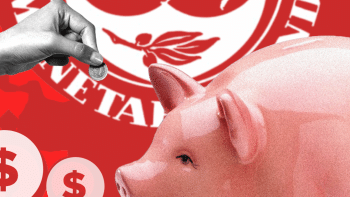
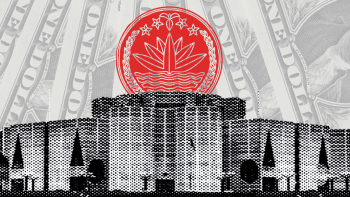
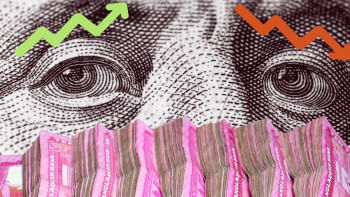




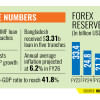
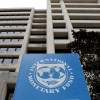



Comments